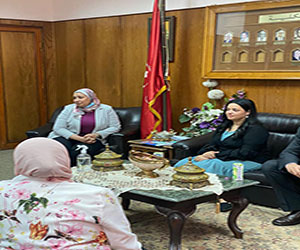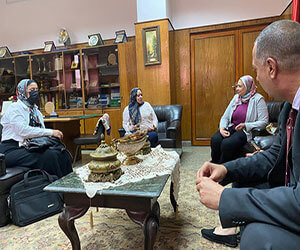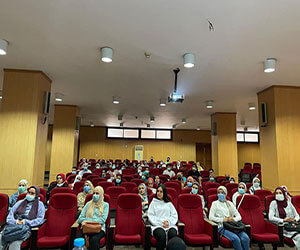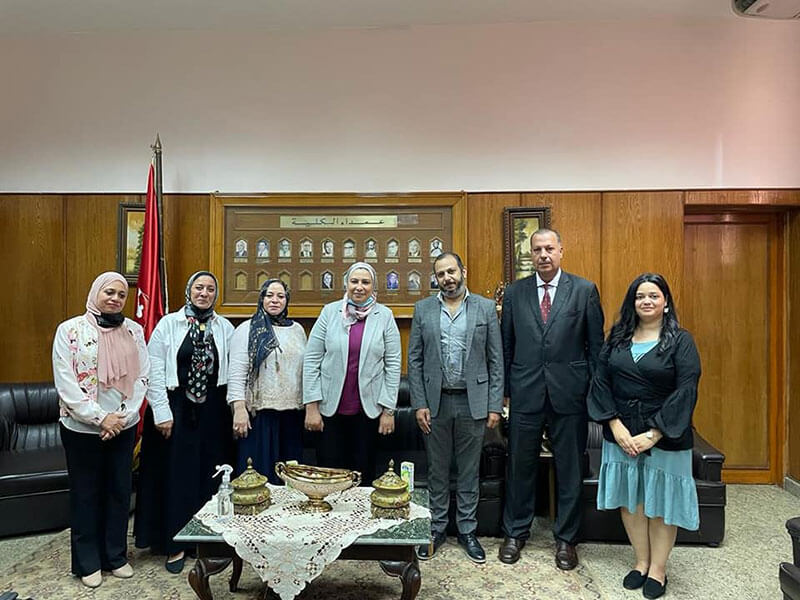Faculty of Al-Alsun organizes a symposium on reproductive health and its impact on population increase in cooperation with the National Population Institute
The Community Service and Environmental Development Sector, at the Faculty of Al-Alsun, Ain Shams University, organized an educational symposium entitled "Reproductive Health and its Impact on Population Growth", in cooperation with the National Population Council, under the auspices of Prof. Dr. Mahmoud El-Matini, President of the University, Prof. Dr. Hesham Tamraz, Vice President for Community Service and Environmental Development, Dr. Tariq Tawfiq, Deputy Minister of Health and Population for Population, Prof. Dr. Salwa Rashad, Dean of the College, Prof. Dr. Youmna Safwat, Vice Dean for Community Service and Environmental Development Affairs.
Prof. Dr. Yomna Safwat, Vice Dean for Community Service and Environmental Development, attended the activities of the symposium, stressing that the population increase is one of the most important problems facing the Egyptian state, stressing that awareness of the culture of procreation must be provided to university students and, in turn, they must spread it in their surrounding communities, stressing that The population increase is a time bomb that can cause a major imbalance in the structure of the Egyptian society. Students must participate in brainstorming sessions to participate in developing innovative solutions to face the dangers of overpopulation.
 |
 |
 |
||
While Prof. Dr. Hala Azzam, Director General of Foreign Agreements at the National Population Council, said that the continuous increase in the population is one of the huge problems that trouble the peoples of developing countries, including Egypt, and this problem is a direct or indirect cause of any other problems that may occur to humans. The imbalance between population, resources and services. Egypt ranks first among the Arab countries in terms of population, third among African countries after Nigeria and Ethiopia, and then fourteenth among the countries of the world.
She stressed that the population issue appears complicated due to the intertwining of its files, especially since the population weight of any country represents a double-edged sword, as it can represent an added value and wealth that must be exploited, as well as a burden and a drain on resources.
She emphasized that family planning is the solution to avoid the consequences of the imminent population explosion in Egyptian society, explaining that family planning and procreation have many economic benefits to society and the individual, as spacing between births organizes family resources for each child appropriately, while close and multiple births are often linked In poverty, the family budget and the family environment are burdened, which contributes to the poor school performance of children due to malnutrition and the parents’ inability to take care of their child’s needs.
The symposium was attended by a group of faculty members, the supporting staff and students at the college, and Dr. Dalia Ali, Director of Coordination at the National Population Council in Cairo, Prof. Iman Zahran, Director of Information at the National Population Council, a. Mohamed Mubarak, Director of Public Relations at the National Population Council in Cairo Governorate, d. Medhat Al-Wakeel, Secretary of the Future of the Homeland Party, El-Waili District.


.svg)




